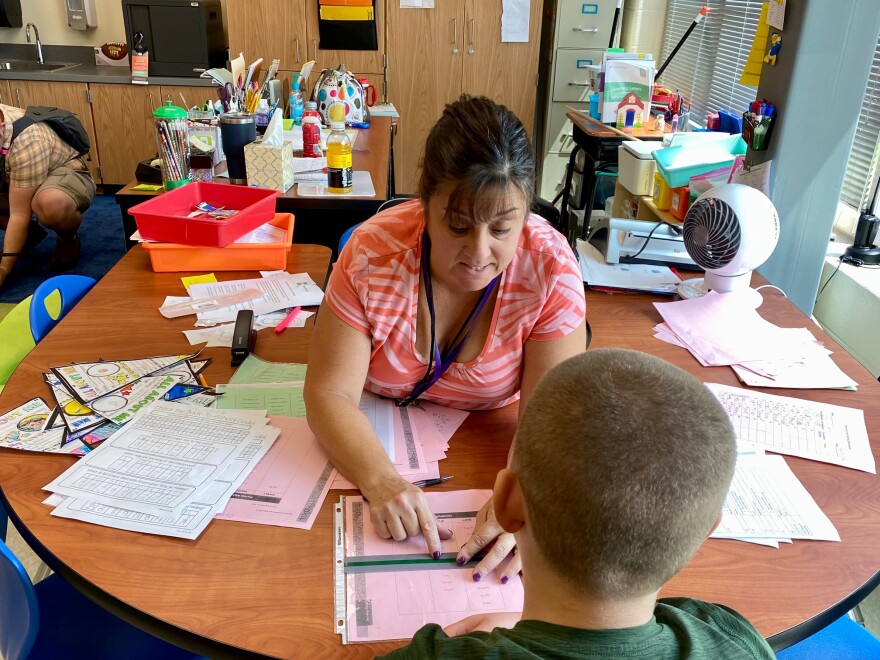A panel charged with rethinking the way North Carolina’s teachers are licensed and paid has released a new proposal that incorporates pay for experience and credentials.
The livelihood of approximately 95,000 public school teachers — and the state's ability to attract and keep top educators — rides on decisions working their way through a series of committees.
North Carolina’s Professional Educator Preparation and Standards Commission, known as PEPSC, created a stir in April when it presented a draft proposal to replace the current pay system with one based on ratings of teacher effectiveness. Critics, including the North Carolina Association of Educators, dubbed it a flawed merit pay plan.
On Thursday, PEPSC rolled out a new draft. Like the previous plan, it includes new levels of licensure for teacher assistants and others who are working toward a full teaching license. And it includes advanced licensing levels with extra pay for teachers who demonstrate effectiveness and take on extra duties. EVAAS effectiveness ratings based on student test scores would remain as one possible measure, along with others to be determined. Stipends of $5,000 or $10,000 a year would no longer apply toward state retirement calculations.
The panel also reviewed a new proposed pay scale that includes a 10% bump for a master’s degree, a 12% raise for National Board certification and a 1% annual experience-based increase. Local boards could continue to supplement state pay.
The report gives an example: A teacher in Alamance-Burlington Schools with 10 years of experience and board certification now makes $56,887 a year, including the local supplement. Under the new plan, that teacher would make $71,945 if the local supplement didn’t change.
“I could contend that these are still not high enough, but certainly a significant improvement over what we’re dealing with at the present time,” said PEPSC member Sam Houston, president of the North Carolina Science, Mathematics, and Technology Education Center.
PEPSC members have spent months listening to teachers and others weigh in on the plan. The latest version incorporates that feedback. The panel will vote later this year on a plan to present to the state Board of Education. Final decisions would come from the General Assembly.
“We’ll probably get to a point sometime when this goes to the General Assembly and the debate will be ‘We can’t afford it.’ Which we all know is not true,” Houston said. “There’s plenty of money in the budget to afford issues of this type. It’s just whether or not we want to spend it for those purposes.”
Several PEPSC members talked about dealing with the “merit pay” label and the opposition it engenders.
State Superintendent Catherine Truitt said merit pay describes a system where teachers compete against each other for rewards.
“This pay proposal is in competition with oneself,” she said. “Compensating teachers according to the impact that they have in the classroom … is not merit pay.”
PEPSC Chair Van Dempsey, Dean of UNC Wilmington’s College of Education, agreed: “In the traditional sense of how we have used the term ‘merit pay,’ I do not think it is a merit pay model.”
Justin Parmenter, a Charlotte-Mecklenburg Schools teacher and NCAE board member, tweeted Friday that he doesn't think teachers will believe that logic.
"Merit pay is when people are paid based on their perceived merits," he wrote. "That’s why it’s called merit pay."
Dempsey said the draft document is an important starting point, and he hopes feedback will continue.
“It is important that people read it carefully,” he said.
Read the PowerPoint presented to PEPSC here, and the pay scale here.








